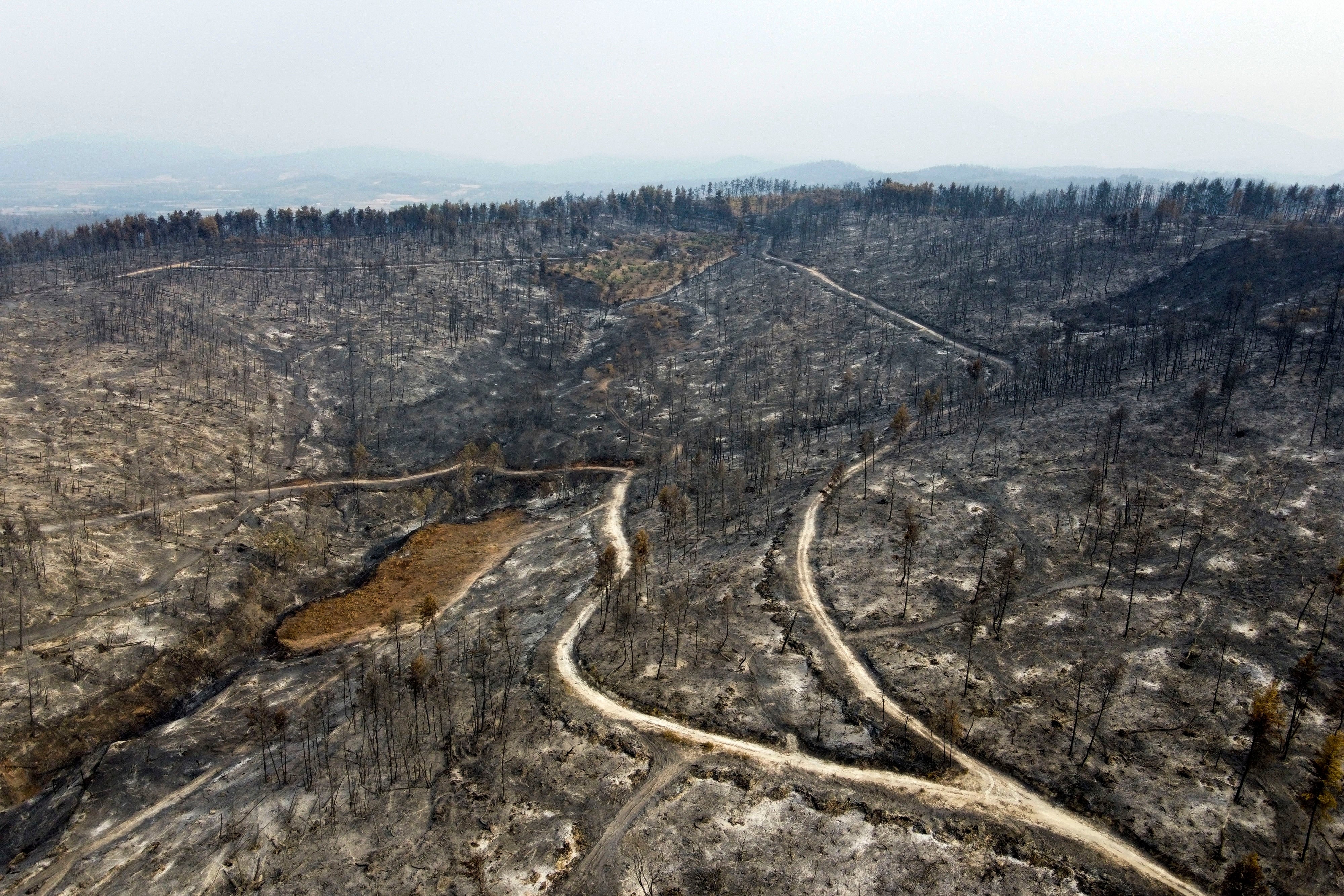Greek wildfires a major ecological catastrophe, PM says
Greek Prime Minister Kyriakos Mitsotakis says the devastating wildfires that burned across the country for more than a week amount to the greatest ecological catastrophe Greece has seen in decades

Greek Prime Minister Kyriakos Mitsotakis said Thursday that the devastating wildfires that burned across the country for more than a week were the greatest ecological catastrophe Greece had seen in decades.
The fires broke out as the country roasted during the most intense and protracted heat wave experienced in around 30 years. Hundreds of wildfires broke out across the country, stretching Greece’s firefighting capabilities to the limit and leading the government to appeal for help from abroad. Hundreds of firefighters, along with planes, helicopters and vehicles, arrived from European and Middle Eastern countries to assist.
“We managed to save lives, but we lost forests and property,” Mitsotakis said, describing the wildfires as “the greatest ecological catastrophe of the last few decades.”
Mitsotakis, speaking during a news conference in Athens his first since the fires broke out, said authorities had faced around 100 active blazes each day. By Thursday, the situation was much improved, with most large wildfires on the wane.
But the prime minister warned the danger of more blazes was still present.
“We are in the middle of August and it’s clear we will have difficult days ahead of us” until the main season during which fires break out is over.
The largest fire broke out on Greece’s second-largest island of Evia on Aug. 3 and was still smoldering on Thursday, after having destroyed most of the island’s north.
More than 50,900 hectares were damaged in northern Evia, according to mapping from the European Union’s Copernicus Emergency Management Service. Entire mountains of pine forest have been reduced to bare, blackened stumps, while olive and fig tree plantations and vineyards were also destroyed.
Subscribe to Independent Premium to bookmark this article
Want to bookmark your favourite articles and stories to read or reference later? Start your Independent Premium subscription today.
